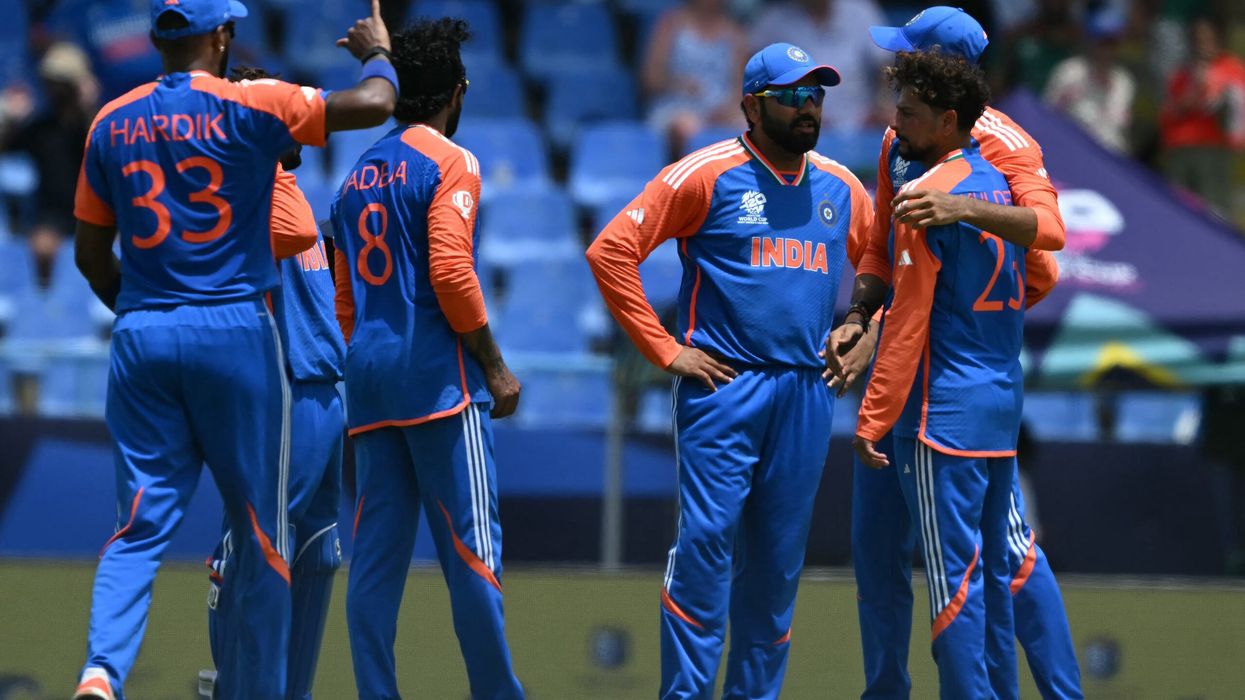India aim to disrupt Australia's T20 World Cup campaign when they face off in their final Super Eight game on Monday. A third consecutive win for India will make them group toppers and secure their spot in the semifinals, while significantly threatening Australia's chances following their unexpected loss to Afghanistan in Saint Vincent on Saturday night.
After the defeat against Afghanistan, Australia no longer control their destiny and will closely monitor Rashid Khan's team in their final game against Bangladesh on Monday. India, having suffered defeats to Australia in past ICC events, seek to eliminate their strong rivals early.
India, having ticked all boxes in their back-to-back wins against Afghanistan and Bangladesh, doesn't need much fine-tuning ahead of the knockouts. Both Rohit Sharma and Virat Kohli played substantial innings against Afghanistan, and Shivam Dube answered critics with a crucial knock. Number three Rishabh Pant aims to correct his frequent dismissals off reverse hits.
Hardik Pandya's all-round performance has been a significant positive for India, complementing his incisive bowling with strong batting. Kuldeep Yadav has quickly made match-winning contributions, and he will be relied on for wickets in the middle overs.
Despite the hectic travel involved in the three Super Eight games, the team management is unlikely to rotate players. India, who arrived in Saint Lucia on Saturday night, chose not to train ahead of the Australia game.
The game will be only the second day game at the Darren Sammy Cricket Stadium. While day-night matches have produced high scores, the previous day game saw England fail to chase 164 against South Africa. The pitch, the best batting strip of the competition, is expected to aid slower bowlers under the sun.
Australia have concerns going into the game. Their batting flopped against Afghanistan, and Mitchell Marsh's team had a forgettable night in the field. Marsh, having logged only 88 runs in six games at a strike rate of 111, needs to lead from the front against India. Off-spinner Glenn Maxwell needs to improve his economy rate of 8.58 runs per over.
Key matchups include how Kohli fares against leg-spinner Adam Zampa, who has previously troubled him. Australia might change their strategy by playing Mitchell Starc instead of an extra spinner like Ashton Agar, used against Afghanistan.
“It was an off-night for us in the field, and we own that. We'll be back next game. It wasn't an easy wicket but both teams played on this surface. (India next...) First and foremost it becomes clear for us. We need to win and no better team to do it against (India),” said Marsh after the Afghanistan game.
Squads:
India: Rohit Sharma (captain), Hardik Pandya, Yashasvi Jaiswal, Virat Kohli, Suryakumar Yadav, Rishabh Pant, Sanju Samson, Shivam Dube, Ravindra Jadeja, Axar Patel, Kuldeep Yadav, Yuzvendra Chahal, Arshdeep Singh, Jasprit Bumrah, Mohammad Siraj.
Australia: David Warner, Travis Head, Mitchell Marsh (captain), Glenn Maxwell, Marcus Stoinis, Tim David, Matthew Wade (wk), Pat Cummins, Ashton Agar, Adam Zampa, Josh Hazlewood, Mitchell Starc, Josh Inglis, Cameron Green, Nathan Ellis.
(With PTI inputs)




